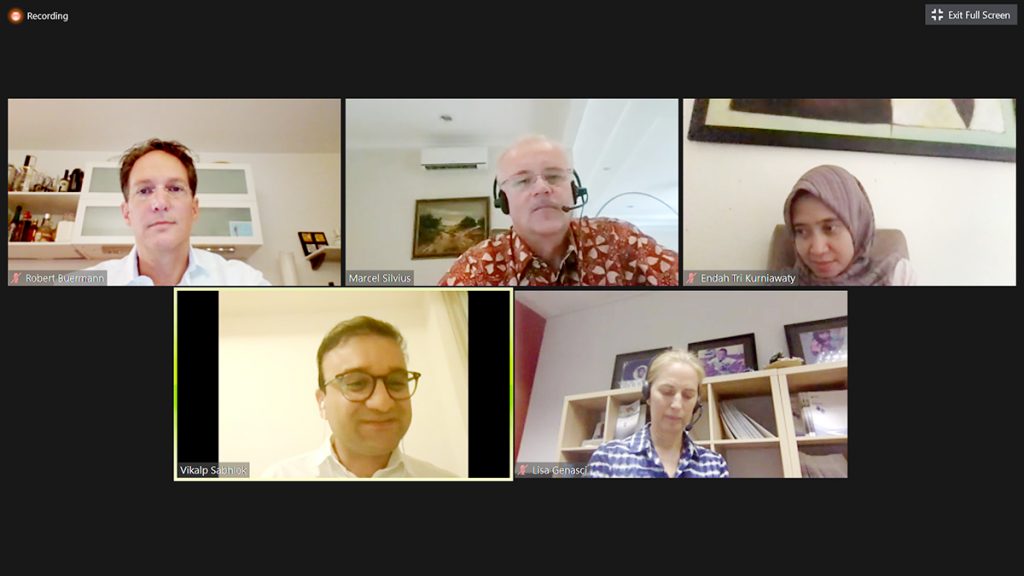Officially opened by the Indonesia Country Representative Marcel Silvius and the moderator – Vikalp Pal Sabhlok, Investment Specialist, GGGI held an online panel discussion on “Mobilizing Green Investment for Indonesia’s Sustainable Landscape Sectors” on May 14, 2020. This discussion is an effort to continue supporting the Government of Indonesia to explore possibilities and scale up existing projects in the sustainable landscape sectors, to achieve its committed Nationally Determined Contributions (NDCs) to mitigate and adapt to the effects of climate change.
The event featured the Deputy Director of Sectoral and Regional Resource Mobilization, Directorate General for Climate Change Control of the Ministry of Environment and Forestry – Endah Tri Kurniawaty, S.Hut., M.Si, CEO of ADM Capital Lisa Genasci, CEO of Fairventures Social Forestry Robert Büermann and GGGI Indonesia Country Representative Marcel Silvius as the panelists. The discussion focused on four key issues; key drivers of mobilizing investments for green projects, enabling conditions for investments in sustainable landscapes sector in Indonesia, the new Environmental Fund (Badan Pengelola Dana Lingkungan Hidup/BPDLH) of Indonesia, and the challenges faced by stakeholders in the landscape sectors. Mobilizing investment in the landscape sectors is vital as around 60% of Indonesia’s NDC commitments relate to the Forestry and Land Use sector. Hence, addressing the need to scale up green investment for sustainable landscapes is crucial to achieve the country’s green objectives and targets.
The discussion revealed that a lot of work still needs to be done in order to achieve the desirable targets. Such as streamlining the objectives of all stakeholders involved in green finance initiatives are crucial to achieve the desired common goal; scaling up investment and projects in the landscape sectors.
All panelists agreed that sustainable landscape projects have to be linked to income generation aspects for communities. The economic linkages associated with sustainable projects and programs must be acknowledged and valued – thereby giving incentives for private and public sector entities to make progress. Indonesia has already started this – by developing the new National Medium-term National Plan (RPJMN) as the first Low Carbon Development plan.
The discussion also revealed that the new BPDLH has potential to be the lead entity for promoting and enabling large scale sustainable landscape investment in Indonesia. The fund could not only channel investment, but also enable investment, thus ‘levelling the playing field’ for sustainable projects. Even though there are sustainable investment opportunities (like Ecosystem Restoration Concessions, social forestry permits, etc.), such projects still require policy support to strengthen the economic feasibility. One key associated aspect that requires further clarification is related to carbon pricing policies and domestic carbon market.
